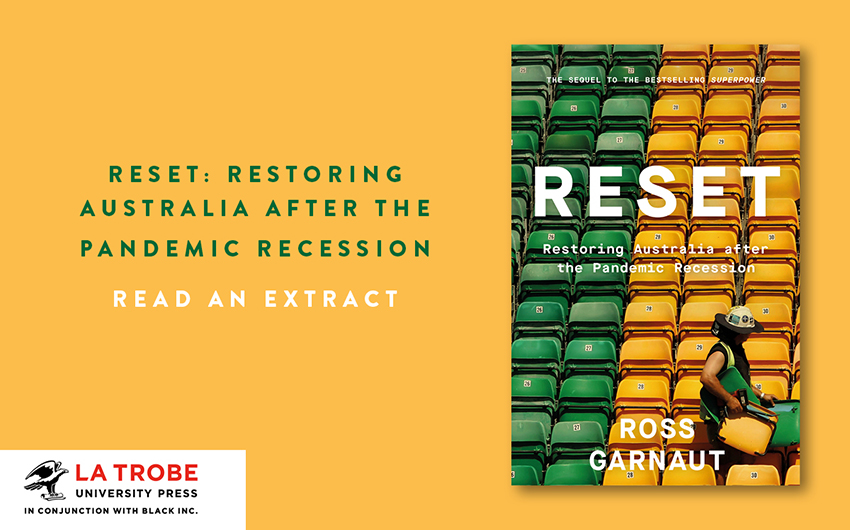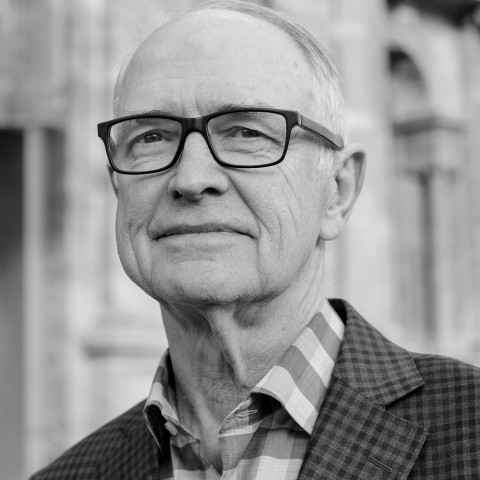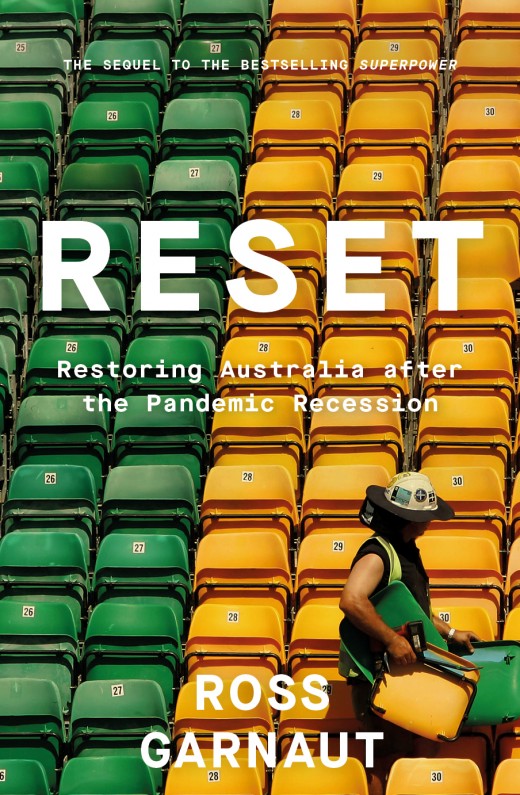News

News >
Read an extract: Reset
Ross Garnaut on populism and the pandemic, from his new book Reset.
This book is about knowledge, and how we apply it to the big challenges of our time. Knowledge is the foundation of successful public policy across all political systems. Broadly shared knowledge is the foundation of a successful democracy.
The quality of medical knowledge, and how it is applied, determines how many citizens of each country become sick in the pandemic and die, and how severely the economy is disrupted. The quality of economic knowledge determines whether the economic downturn is brief and shallow, or protracted and profound. The pandemic recession is exacerbating stresses between countries. Knowledge of international relations affects whether this leads to war or peace; to renewed international trade and investment, or to a long global recession. And beyond the urgency of the pandemic, knowledge and our use of it will determine how well we handle the larger and more persistent natural challenges of climate change.
Sometimes, when we don’t know whether good outcomes are likely, radical uncertainty requires doing what gives the best chance of success. Radical uncertainty is present in any big public policy decision, because we only ever understand part of the relevant world. Knowledge develops over time, and changes with new observations. Yet knowledge is nevertheless essential to good decisions. Not using knowledge at all makes bad outcomes certain. Using the available knowledge well, taking every chance to increase knowledge as events unfold, and adjusting policy in the light of new knowledge, improves outcomes and may lead to good ones.
Here there is a dilemma for a wise leader. Humans dislike uncertainty. They want to think that their leaders know where the country is headed and the effects of their policies on the destination. Members of a society that are confident their leaders know where they are going and are satisfied this is a desirable destination will accept constraints in the public interest. Without such confidence, they will not cooperate, and it is not always possible for governments to force compliance.
Leadership is first of all the telling of a coherent story about the challenges facing a society, the path ahead, and how the leader proposes to improve the destination. Profound and knowledgeable thinkers seldom succeed as political leaders. The great professors are aware of the reality of radical uncertainty and fail to assure the polity that they know where they are taking the country. The case of a great business leader succeeding in political leadership is even rarer. Great business leaders are accustomed to making decisions in a simple value-maximising framework that need take no account of the complex relationships that are important in defining objectives in a way that holds a society together and creating a widely shared view that personal sacrifice to advance the objectives is in everyone’s interest.
Great political leaders absorb knowledge from the experts, including knowledge of what we do not know. They use that knowledge to build policies that give the country the best chance of coming to a position that most people think is good. They explain the reasons for the choices in ways that give confidence that the sacrifices are worth the effort. They acknowledge uncertainty, while projecting confidence that the best path has been chosen. We can see this in the appeals by democratic leaders to their polities at moments of radical uncertainty and consequence. Prime Minister Winston Churchill in June 1940: ‘I have myself full confidence that if all do their duty, if nothing is neglected, and if the best arrangements are made, as they are being made, we shall prove ourselves again able to defend our island home, to ride out the storm of war, and to outlive the menace of tyranny, if necessary for years, if necessary alone.’ Or Franklin Roosevelt in his inaugural address in 1933: ‘This is pre-eminently the time to speak the truth, the whole truth, frankly and boldly. Nor need we shrink from honestly facing conditions in our country today … So, first of all, let me assert my firm belief that the only thing we have to fear is fear itself – nameless, unreasoning, unjustified terror which paralyses needed effort to convert retreat into advance.’
In the democracies, there is an alternative to wise and knowledgeable leaders explaining the choices and acknowledging uncertainty while projecting confidence that the best course has been chosen. The citizens’ yearning for certainty can sometimes be met for a while in highly uncertain times by the assertion that there is a simple answer to a complex question. Defence of the simple answer involves rejection of knowledge that is inconsistent with it. The appeal of the assertion is strongest if the answer includes a call to defend a tribe or nation from enemies within or without who are identified as the cause of problems. The alternative includes confident assertion of falsehood. This is the phenomenon that has come to be known as populism. It has become increasingly important in the democracies over the past two decades, especially among right-of-centre parties and groups riding the wave of reaction against globalisation and unhappiness with elites at a time of increasing inequality in incomes and wealth.
The populist leader’s confident assertion of an erroneous view comes unstuck when the progress of events reveals the error and the damage that has come from it. The leaders who went furthest in rejecting scientific knowledge about the pandemic at the beginning – President Donald Trump in the United States, President Jair Bolsonaro in Brazil and, for a while, Prime Minister Boris Johnson in the UK – have been damaged politically by the revelation that their failures to heed medical science led to outcomes that were very much worse than they would have been if policy had been built on respect for scientific knowledge. All contracted the disease themselves.
One big geopolitical consequence of the pandemic may be the discrediting of populism – the confident assertion of simple falsehoods by the likes of Trump and Bolsonaro. In November 2020, this was fatal for Trump’s presidency. We will gradually learn whether the defeat or degrading of ‘populist’ leaders in the pandemic was the end of the downgrading of knowledge in public policy in the capitalist democracies, or merely a pause.
A great deal of damage can be done before reality unravels populist leadership. The damage can be greater at times like the present, when there is both strategic conflict with successful authoritarian states and internal disagreement about established economic ideas and political institutions.
The decline in respect for knowledge is present in many democracies in the twenty-first century, but is not evenly spread across them. Its sources include resentment at rapid change and the increased complexity in life, with citizens required to learn new things simply to enjoy continued access to old comforts. The expertise required to navigate the increasing complexities of modern life arouses resentment against ‘experts’ who are comfortable with these complexities and with imposing them on others. There is also a social and cultural reaction against the loss of established ways of life.
The emergence of the internet as the main provider of information about domestic and international events has had a negative effect on the quality of knowledge available to most people. The low cost of serving small audiences online allows proprietors to ‘narrowcast’ information: to speak to only part of the national population. The internet absorbs almost all the advertising revenue that once supported the highest-quality news sources. Newspapers and other established media forms now invest less in securing the depth and accuracy of information that they carry. The internet platforms do not generate content of their own, but spread widely the content from other media. The other media have become more strident and less knowledgeable. In an attempt to maintain audiences and revenues, media business models have come to focus on simple exhortations geared to reinforcement of readers’ views. Former prime minister Malcolm Turnbull made this point when speaking at a forum in early December 2020: ‘We have seen during this year an acceleration of dark trends in the media landscape … the rise of social media and the ability of the mainstream media to narrowcast … we’ve started to see the dangerous situation where communities no longer share the same facts. A political community, a democracy, depends on a common understanding of what the facts are … where you have alternative facts and alternative realities you get into a dangerous landscape.’
This is an edited extract from Reset: Restoring Australia after the Pandemic Recession, out now.
Share this post
About the author
Ross Garnaut is the professorial research fellow in economics at the University of Melbourne. In 2008, he produced the Garnaut Climate Change Review for the Australian government. He is the author of many books, including the bestselling Dog Days, Superpower and Reset.
More about Ross Garnaut




